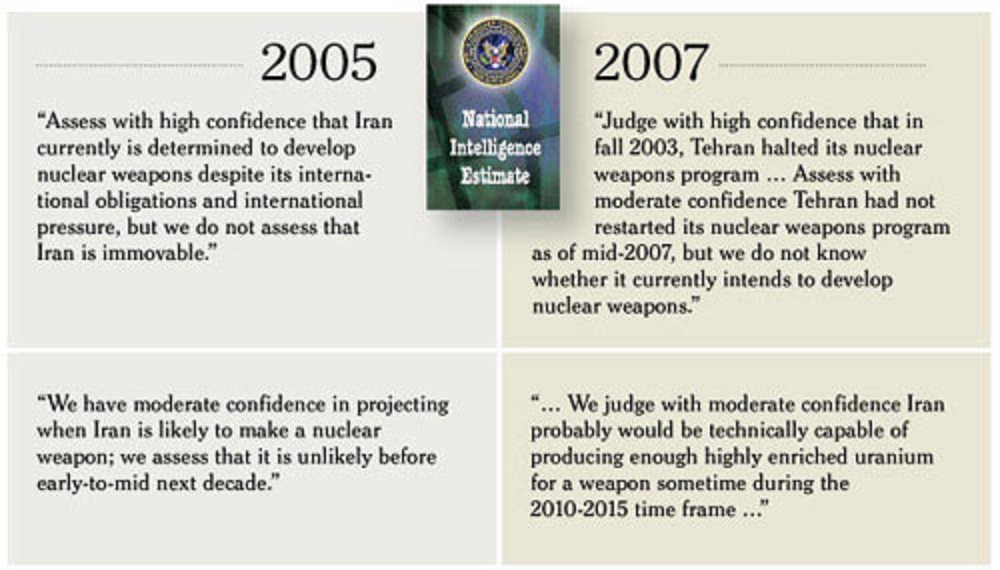Jonathan Pollard – The Case for Commutation of Sentence
During the course of President Obama’s recent interview with Israel’s Channel 2 on March 21st, in response to whether he would consider commuting the life sentence of former civilian U.S. naval intelligence analyst and convicted Israeli spy Jonathan Pollard, he remarked: “As president, my first obligation is to observe the law here in the US. I need to make sure that every individual is treated fairly and equally.”
To do so, perhaps he should begin with a question. Why have former U.S. Deputy Defense Secretary Lawrence Korb (who served under Caspar Weinberger), former U.S. Senate Intelligence Committee Chairman Dennis DeConcini, Ronald Reagan’s National Security Advisor Robert McFarlane, former CIA Director James Woolsey, former Attorney General Michael Mukasey, former Deputy Attorney-General Philip Heymann, former Secretaries of State Henry Kissinger and George Schultz, 39 U.S. Congressmen, 18 U.S. ex-Senators and even the European Parliament (on September 16th, 1993) repeatedly called for Pollard’s sentence to be commuted.
The answer, quite simply, is because Pollard’s punishment did not fit his crime.
McFarlane went so far as to write that Pollard’s imprisonment was “disgraceful and mean-spirited,” and “well beyond what any court would sentence for the same action today.” He called Pollard’s life sentence a “great injustice” and disproportionate to the crime he committed.
In 1987, Pollard pleaded guilty to one count of providing classified American intelligence information to an ally – Israel, but the agreement was quashed by the judge at the request of then-U.S. Secretary of State Caspar Weinberger who submitted a top-secret letter and memorandum that falsely accused Pollard of treason.
It would later be disclosed that Aldrich Ames (a senior CIA official) and Robert Hanssen (a senior FBI official) not Pollard had sold the names of American agents to the Russian KGB although Pollard, rotting in jail, remained the fall guy. As it happens, Pollard was classified as a GS-12 – an intelligence analyst with no special “blue stripe” clearance (as had Ames and Hanssen) for access to vital secrets including the names of U.S. foreign intelligence agents in Russia, but that did not deter U.S. intelligence agencies who were desperately seeking some way to control the damage done by Ames and Hanssen and to justify Pollard’s life sentence.
In fact, the newly-declassified 1987 CIA Damage Assessment indicates that the information Pollard provided to Israeli intelligence related primarily to Tunisian, Syrian, Pakistani, Iraqi, Libyan, Iranian and Soviet nuclear, chemical, and biological warfare capabilities and Saudi intelligence assets – vital U.S. intelligence information that he believed Israel was legally entitled to receive, but which was being withheld as retaliation for Israel’s 1981 pre-emptive strike on Iraq’s Osirak nuclear reactor (the CIA has a long-standing pro-Arab predisposition) and as potential bargaining leverage with Israel.
–break–
The information Pollard provided also included a signals intelligence manual the Israelis needed to listen in on Soviet advisers in Syria, satellite photos of the PLO headquarters in Tunisia, information on Soviet arms shipments to Syria and other Arab states, Tunisian and Libyan air defense systems, information on Egyptian missile systems, and a “blue book” roster that listed the identities of all the Saudi and other Arab intelligence agents (as of 1984) including, coincidently, a Saudi terrorist by the name of Osama bin Laden. With regard to Syria, Pollard provided documents concerning a suspected research and development facility, the Syrian electronics intelligence (ELINT) system, Syrian drones, a national command, control, and communications center based in Damascus, and Syrian military units to which Soviet advisors were assigned – information for which he was paid by the Israelis.
The common denominator in all these documents was that they related to the existential threat posed to Israel by these hostile countries. Pollard was never charged with treason, he never had a trial, and he was never indicted for harming the United States or for compromising U.S. capabilities, codes, agents, or war plans. He was indicted and convicted on only one charge – one count of passing classified information to a foreign power, an ally – without intent to harm the United States. Under the heading “What the Israelis Did Not Ask For,” the Assessment remarks (at page 43) that the Israelis “never expressed interest in U.S. military activities, plans, capabilities, or equipment.”
Contrary to the extremely damaging “worst spy in history” and “betraying America’s sources and methods” comments expressed by Weinberger, there is no evidence that Pollard’s actions led to the loss of a single American life over the years. As former U.S. federal prosecutor John Loftus notes in his detailed research into the intelligence aspects of the case, no less a figure than Assistant U.S. Attorney Charles Leeper (who was involved in laying the initial indictment against Pollard) subsequently characterized the damage caused by the release of the information that Pollard actually gave Israel as “minimal”, and in 1994, government sources were quoted as saying that “no one died as a result of the Pollards” (Washington Post, Apr. 23, 1994). As Loftus writes in Moment Magazine (June 2003)….. “Pollard was stealing Soviet secrets for Israel, not American secrets for the Soviets.”
Moreover, a concurrent damage assessment known as the Victim Impact Statement (VIS), written by the U.S. Department of Justice and submitted to the sentencing judge in 1987 as an aid in determining Pollard’s sentence determined that the damage was determined to be nothing more than short-term friction between the U.S. and unnamed Arab countries and a temporary reduction in bargaining leverage held by the U.S. over Israel – not the kind of permanent, irreversible, and overwhelming harm to U.S. national security that some have claimed.
It is true that Pollard committed a serious crime and his espionage should not be condoned nor should the gravity of his crime be underestimated, but his 28-year sentence is outrageous considering that the average sentence for passing classified material to an ally is 10 years, and the median time served for such an offense is between 2 and 4 years.
Indeed, former CIA Director James Woolsey suggested that Pollard’s sentence was unjust in an interview with National Public Radio (NPR) in March 2013. He noted that America has caught several spies for friendly countries, including spies for Greece and the Philippines, and sentenced them to serve terms ranging from four to seven years.
Nor were they alone. In the mid-1990s, Robert Kim, who spied for another U.S. ally, South Korea, was punished with nine years in prison, of which he served seven. Other spies, like Randy Jeffries, a Federal Bureau of Investigations clerk who spied for hostile nations like the Soviet Union, and Sharon Scranage who spied for Ghana, were sentenced to three and two years respectively.
Even agents who committed far more serious crimes on behalf of hostile nations like the Soviet Union did not receive such a harsh sentence. In fact, of the more than 50 recently convicted Soviet bloc and Chinese spies (except for Aldrich Ames and Robert Hanssen, noted above, both of whom also received life sentences for espionage activities that caused irreparable damage to U.S. interests and the loss of U.S. intelligence agents in the Soviet Union) two-thirds served less time or were sentenced to less time than Pollard has already served.
Alan Dershowitz, writing in the Washington Post (Jan. 2, 1999, page A19) added even more fuel to the argument supporting a commutation of sentence for Pollard:
“In 1995, an American Naval officer named Michael Schwartz (a non-Jew) was arrested and, after confessing, indicted for spying for Saudi Arabia, an American ally. Schwartz’s only punishment was discharge from the Navy with the loss of his rank and pension. He never spent a day in prison. In 1986, Dr. Abdel Kader Helmy was arrested and indicted for passing American ballistic missile secrets and parts to Egypt, which then passed them on to Iraq. Helmy’s treachery led directly to Iraq’s development of the Condor missile. At the insistence of both the State and the Defense Departments, Helmy was indicted not for espionage, but for “smuggling” restricted technology. Helmy was sentenced to four years in prison, and was released after two years. In 1987, Clayton Lonetree was convicted of spying for the Soviet Union, an enemy of the U.S. Among other things, Lonetree passed the floor plans of the U.S. embassies in Moscow and Vienna to the Soviets, jeopardizing the lives of all the Americans employed there. He was sentenced to 25 years in prison and, after several sentence reductions, was released after 9 years.”
The short of it is this. Pollard is the only person in U.S. history to receive a life sentence for spying for a U.S. ally – Israel. He spied in the U.S. but not against the U.S. He has more than paid his debt to society. It is time for justice to be done and to commute his sentence to time served.




